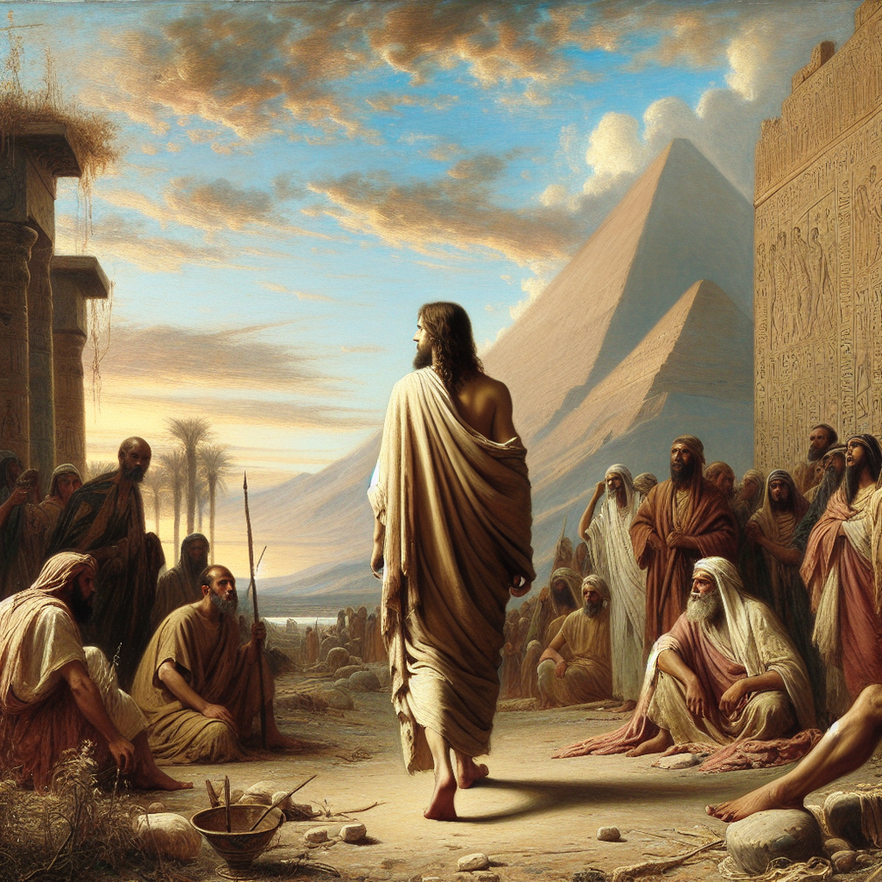Isaiah 20-22: A Sign of Trust in God

Isaiah Chapters 20 to 22
Key Verses
- Isaiah 20:1-2: "In the year that the commander, sent by Sargon king of Assyria, came to Ashdod and attacked and captured it— at that time the Lord spoke through Isaiah son of Amoz: 'Go, take off the sackcloth from your body and remove your sandals.' And he did so, going around stripped and barefoot." (NIV)
- Isaiah 21:9: "Look, here comes a man in a chariot with a team of horses. And he gives back the answer: 'Babylon has fallen, has fallen! All the images of its gods lie shattered on the ground!'" (NIV)
- Isaiah 22:12-13: "The Lord, the Lord Almighty, called you on that day to weep and to wail, to tear out your hair and put on sackcloth. But see, there is joy and revelry, slaughtering of cattle and killing of sheep, eating of meat and drinking of wine! 'Let us eat and drink,' you say, 'for tomorrow we die!'" (NIV)
Themes
- Judgment and Prophecy: These chapters contain prophecies against various nations, including Egypt, Cush, Babylon, and Jerusalem, highlighting God's sovereignty and judgment over nations.
- Trust and Reliance: The chapters emphasize the futility of relying on human strength and alliances instead of trusting in God.
- Humility and Repentance: The call for humility and repentance is evident, especially in the context of Jerusalem's complacency and false security.
Historical Context
- Time Period: These chapters were written during the late 8th century BC, a time of Assyrian dominance in the Near East.
- Political Climate: Assyria was expanding its empire, leading to political instability and fear among smaller nations. Egypt and Cush were seen as potential allies against Assyria, but Isaiah warns against such reliance.
- Significant Events: The fall of Ashdod to Assyria (Isaiah 20) and the eventual fall of Babylon (Isaiah 21) are significant events that underscore the prophecies.
Cultural Context
- Symbolic Acts: Prophets often used symbolic acts to convey messages. Isaiah's act of walking barefoot and stripped was a sign of impending humiliation and defeat for Egypt and Cush.
- Social Norms: Clothing was a significant indicator of status, and being stripped was a sign of disgrace. The imagery of feasting in Isaiah 22 reflects a culture of complacency in the face of impending judgment.
Etymology
- "Naked" (עָרוֹם - 'arom): This Hebrew word suggests a state of being stripped or exposed, often associated with shame rather than complete nudity.
- "Burden" (מַשָּׂא - massa): Often used to describe a prophetic oracle, particularly one of judgment or doom.
Put it into Practice
- Trust in God: Reflect on areas where you may be relying on human strength or alliances and consider how you can place your trust more fully in God.
- Repentance: Embrace humility and repentance in your spiritual journey, recognizing the importance of aligning your actions with God's will.
- Awareness of Complacency: Be vigilant against complacency in your faith, ensuring that you are spiritually prepared for challenges.
Questions
- How do you respond to the idea of trusting in God over human alliances in your personal life?
- What lessons can you learn from Isaiah's symbolic acts about obedience and humility?
- In what ways might you be complacent in your faith, and how can you address this to deepen your spiritual journey?
These chapters of Isaiah challenge readers to trust in God rather than human power, to repent and humble themselves, and to remain vigilant against complacency. Reflecting on these themes can lead to personal growth and a deeper understanding of one's faith journey.